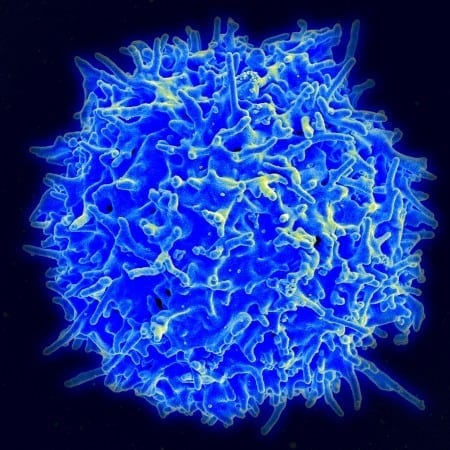Immunotherapy is a type of biological therapy that stimulates or trains your body’s immune system to react in a certain way.
There are many types of immunotherapy used in many different medical fields. Many treatments used to combat allergies, for example, fall into the category of immunotherapy. Several specific types of immunotherapy are commonly used in cancer treatment. In cancer treatment, immunotherapy stimulates the body’s immune system to attack and kill cancer cells.



